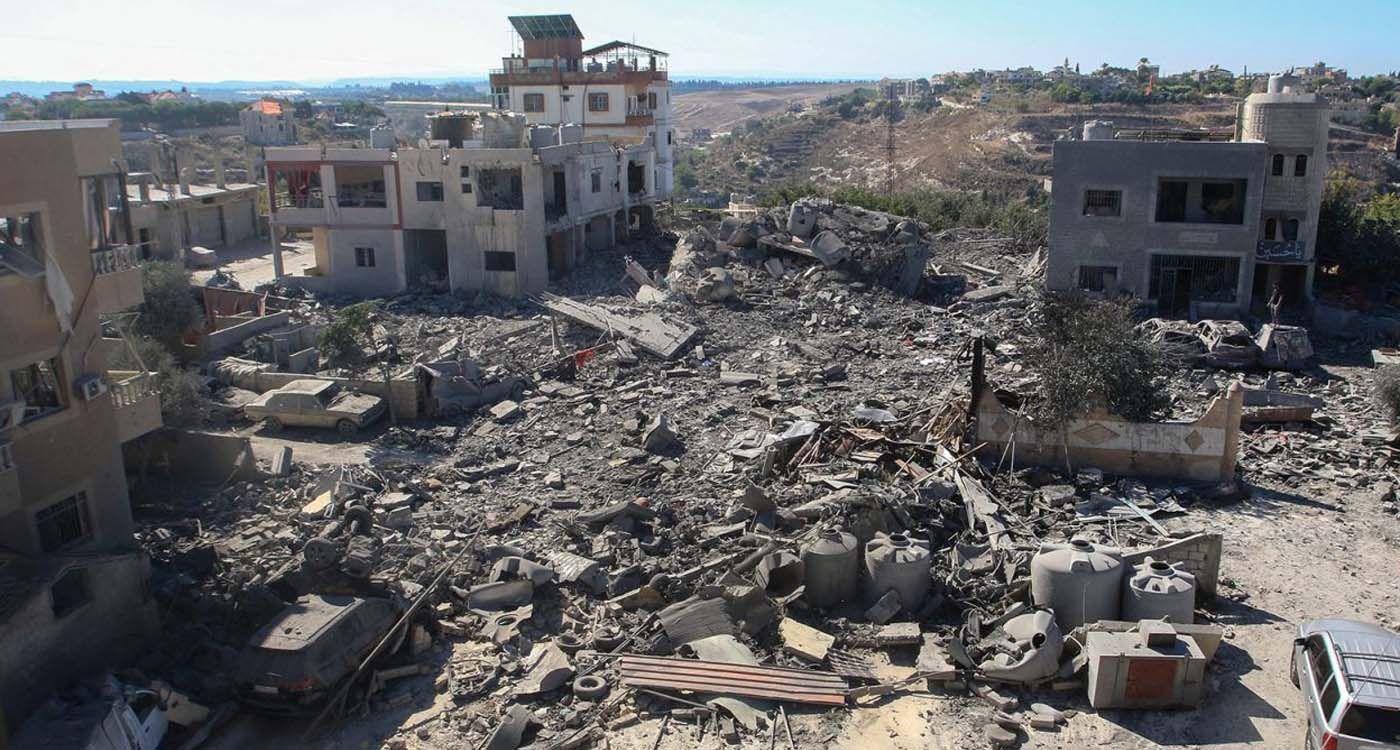
I'm relieved that the bombing and the killing have ceased, offering a much-needed moment of respite for all Lebanese. Displaced families, despite their hardships, have found humor even in adversity, joking about missing Avichay Adraee's daily tweets. This reflects the resilience of the Lebanese spirit. However, as the adrenaline from war subsides, serious questions emerge: When will displaced people return home? What plans exist for reconstruction, and who will bear the cost? Do Hezbollah supporters fully grasp the implications of the agreement? Can the government ensure its successful implementation? Please pardon my critical perspective and cautious approach to this topic.
The ceasefire agreement between Israel and Lebanon seems to provide clear strategic benefits for Israel. Under the deal, Israel retains the ability to monitor Hezbollah's activities through intelligence operations and maintains the right to act unilaterally if violations occur. This ensures Israel's security interests are preserved while testing Hezbollah’s compliance through a staged withdrawal process. Will Hezbollah comply with the terms of the agreement? Can the Lebanese Army, with support from the US and international observers, effectively enforce its implementation? Will Hezbollah act humbly internally or will it continue its condescending approach to local politics?
However, challenges remain as unarmed Hezbollah members are expected to return to southern Lebanon, potentially complicating enforcement. The agreement also involves international actors like UNIFIL and the US, ensuring broader oversight. Lebanon benefits from a de-escalation of conflict, but the balance heavily depends on Hezbollah's adherence to the terms with Israel positioned to respond strongly to any breaches, as written in the agreement. Hezbollah did not include their captives as part of the ceasefire agreement, primarily because the group was focused on a broader strategic goal rather than specific humanitarian or diplomatic considerations. The agreement between Israel and Hezbollah, brokered by the United States, was primarily designed to stop the hostilities, not to resolve every aspect of the conflict, including the issue of captives. Hezbollah's stance might be shaped by a belief that the matter of captives is better handled through separate, more direct negotiations or later phases of the conflict resolution process. So who won? Or, is it a reload phase for Natanayahu’s cabinet warmongers? Natanyahu gives three key reasons for wanting a ceasefire now: To focus on the Iranian threat, rest and reequip soldiers and isolate Hamas. Rest and reequip for whom?
Hezbollah claims victory in the ceasefire, as it frames the agreement as a testament to its resilience and ability to resist Israel's military operations. By portraying itself as having withstood Israel's advances, Hezbollah seeks to maintain its narrative of defending Lebanon and opposing Israeli aggression. This assertion also serves to bolster its regional and domestic image, despite the significant losses it reportedly incurred during the conflict. The group's messaging is likely aimed at sustaining support among its base while undermining perceptions of Israel’s strategic gains.
So how did the ceasefire come to be? The ceasefire is designed to allow Biden to leave and Israel to be re-armed by the incoming Trump administration. Trump is looking for a permanent deal in the Middle East, and he already declared his intentions towards Iran. The new administration has a year or so to pull out of the region and insure security and stability in order to shift focus toward the Chinese sea.
Former President Donald Trump did express a desire for a resolution to the ongoing conflicts in the Middle East, including those involving Israel and Hezbollah, before President Biden left office in 2024. Just like in the past between President Carter and President Reagan. Before Ronald Reagan assumed office in January 1981, President Jimmy Carter brokered the end of the Iran Hostage Crisis, which can be viewed as a form of "war" between the US and Iran, though it was not a conventional military conflict. The crisis began in November 1979, when Iranian militants stormed the US Embassy in Tehran, taking 52 American diplomats and citizens hostage. The hostages were held for 444 days, creating a tense diplomatic standoff.
President Joe Biden has been criticized for what some perceive as a cautious or "slow-walking" approach to supporting Israel during its conflicts. Critics argue that delayed military aid and diplomatic pressure have put Israeli troops with low ammunition, influencing their ability to effectively counter threats like Hezbollah in Lebanon. As Biden's administration nears its end, his reported consideration of UN abstentions and other diplomatic measures has been viewed by some as undermining Israel’s strategic position.
Additionally, Israel has sought alternative diplomatic channels, such as negotiating with France, to mitigate international legal and political pressures, particularly related to cases pursued by the International Criminal Court (ICC). These moves highlight Israel’s proactive efforts to navigate international challenges while maintaining operational freedom.
The conflict with Hezbollah, supposedly a significant ally of Hamas, underscores the interconnectedness of regional militant groups. Throughout the October 7 war, Hezbollah pledged support to Hamas, aiming to stretch Israel’s resources and attention. However, Israel’s military campaign in the north reportedly decimated Hezbollah's leadership and weaponry, effectively neutralizing it as a major threat. This outcome not only shifts the balance in Israel's favor but also isolates Hamas further, reducing its ability to rally external support.
The recent ceasefire, while ostensibly a pause in hostilities, is strategically timed. With just 60 days to go before a potential leadership change in the US, Israeli Prime Minister Benjamin Netanyahu has framed the agreement as conditional and temporary. If violated, Israel retains the option to resume military actions, particularly under a potentially more supportive US administration led by Donald Trump.
While the northern front with Hezbollah is temporarily subdued, the Gaza conflict remains unresolved. Israel's primary objective in Gaza is the recovery of hostages and the dismantling of Hamas’ infrastructure. However, critics suggest that Biden's administration may pressure Israel into accepting an agreement that preserves Hamas’ rule, similar to the situation in Lebanon. Such an outcome is unlikely to align with Israel’s long-term security objectives.
Instead, Israel appears focused on consolidating its gains and preparing for future confrontations. The absence of Hezbollah from the conflict equation strengthens Israel’s position, allowing for renewed efforts in Gaza with greater leverage. January 20, the date marking the end of Biden’s term, looms as a pivotal moment for Israeli strategy, potentially ushering in a period of more decisive military and diplomatic actions under a new US administration.
This ceasefire reflects a calculated Israeli approach, balancing immediate security needs with long-term strategic goals. While temporary peace may offer respite to residents in the north, its durability hinges on Hezbollah’s compliance and broader regional dynamics. Israel's focus on removing Hezbollah as a threat and isolating Hamas positions it to act decisively when circumstances permit.
As the Biden administration navigates its final weeks, its policies will continue to influence Israel’s maneuvers. With a potential shift in US leadership, Israel is poised to recalibrate its strategy, ensuring it remains prepared to counter Iran’s influence and secure its borders against persistent threats. And for these reasons, I am still skeptical of a clear secure future, internally and regionally.



Comments